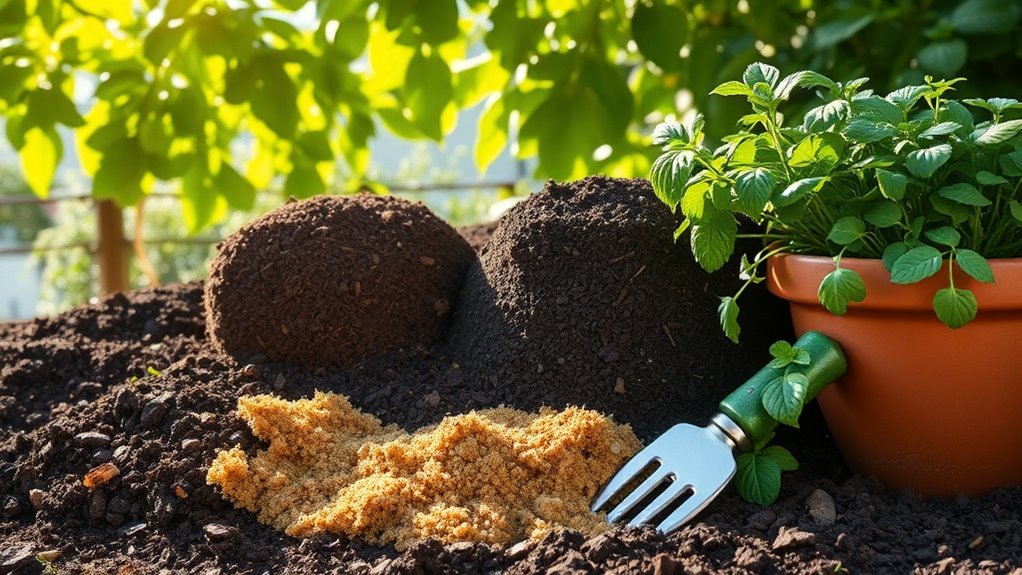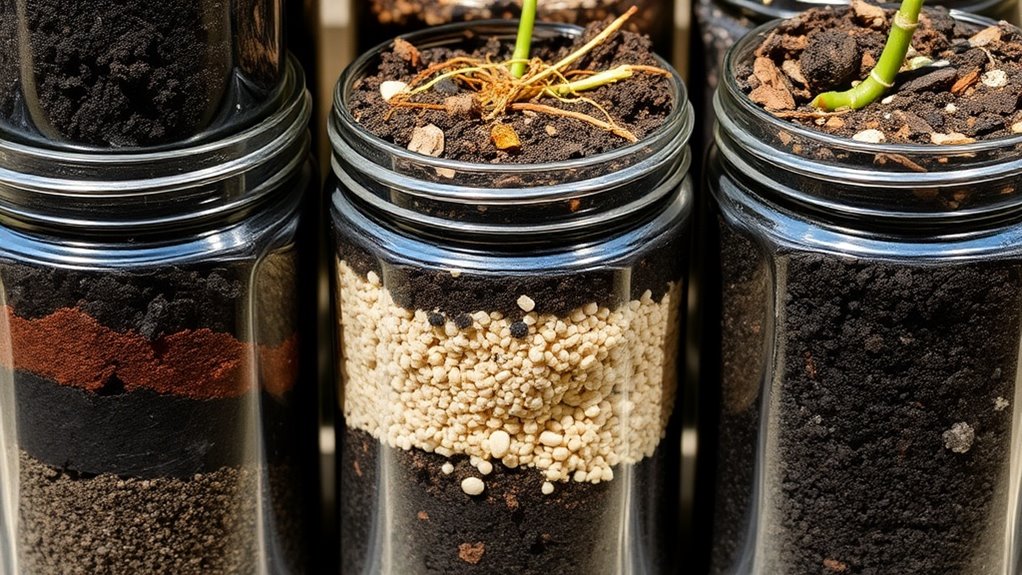The Best Soil Amendments for a Thriving Garden
The right soil amendments can make or break your garden, transforming it into a veritable Eden or a barren wasteland. Understanding the essential nutrients and organic matter needed for optimal plant health is crucial. But how do you choose the best amendments and effectively integrate them into your soil? We’ll explore popular options and strategies to ensure your garden thrives, setting the stage for fruitful growth and productivity.
Understanding Soil Nutrients
Understanding soil nutrients is crucial for cultivating a successful garden. By analyzing the nutrient composition, you can determine which soil amendments to apply.
Key nutrients like nitrogen, phosphorus, and potassium directly influence plant growth. Assessing nutrient deficiencies enables you to choose appropriate amendments, ensuring optimal fertility. Regular pH level testing and nutrient assessments help maintain an ideal balance in your soil.
Balancing these elements creates a thriving environment, enhancing plant health and yield in your garden.
The Benefits of Organic Matter
Organic matter plays a significant role in enhancing soil structure and fertility, directly benefiting the nutrient composition discussed earlier.
It increases soil aeration and water retention, facilitating root growth.
Furthermore, organic matter acts as a reservoir for essential nutrients, promoting microbial activity that aids in nutrient cycling. Additionally, it supports beneficial microorganisms, creating a thriving environment for plant development.
Popular Soil Amendments
Popular options include compost, which improves soil structure and nutrient content, and worm castings, known for their high microbial activity. Additionally, peat moss retains moisture, while perlite enhances aeration. Each amendment has unique benefits that can tailor your soil’s properties to suit specific plant needs. Incorporating organic compost can significantly boost nutrient content, ensuring plants receive essential elements for optimal growth.
How to Incorporate Amendments Into Your Soil
Incorporating amendments into your soil is a vital step in optimizing your garden’s health and productivity.
Start by evenly distributing the amendment over the soil surface, then use a tiller or garden fork to mix it in to a depth of at least six inches.
Finally, water the area thoroughly to help the amendments integrate effectively and activate beneficial microbial processes.
Testing Your Soil for Nutritional Needs
How do you know if your soil supports the growth your plants need?
Start by testing its pH and nutrient levels. Use a soil test kit to assess nitrogen, phosphorus, and potassium concentrations.
This analysis reveals deficiencies or imbalances. Understanding these factors helps you tailor amendments effectively, ensuring your garden receives the right nutrients for optimal growth and vitality. Additionally, regular soil testing can identify nutrient deficiencies essential for plant health.
Tips for Sustainable Soil Management
To maintain healthy soil over the long term, you need to adopt sustainable management practices that promote ecological balance.
Implement these strategies:
- Rotate crops annually to enhance nutrient diversity.
- Add organic matter to improve soil structure.
- Practice minimal tillage to preserve soil microbes.
- Utilize cover crops to prevent erosion and nutrient runoff.
These techniques increase soil resilience and fertility for optimal garden growth, while regular soil testing ensures that you can identify any nutrient deficiencies that may arise.





